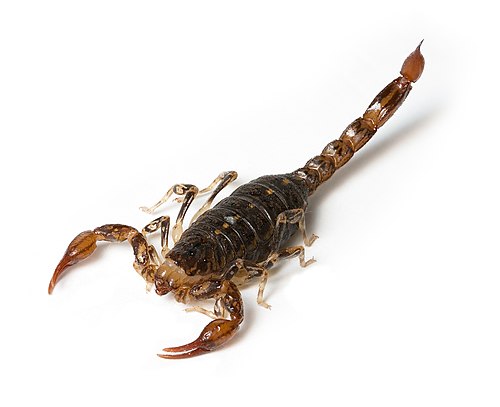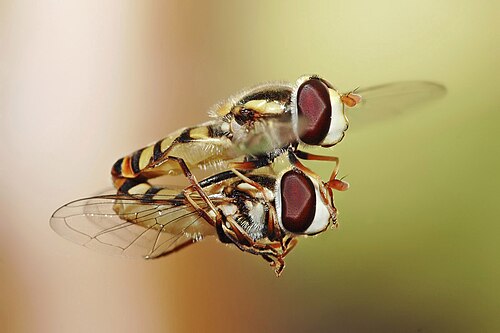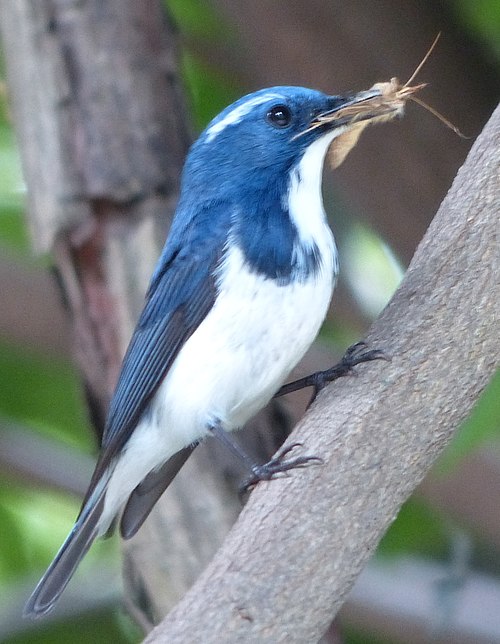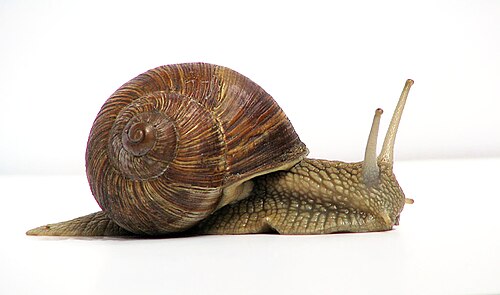Insectnoun
An arthropod in the class Insecta, characterized by six legs, up to four wings, and a chitinous exoskeleton.
Insectnoun
(colloquial) Any small arthropod similar to an insect including spiders, centipedes, millipedes, etc
Insectnoun
(derogatory) A contemptible or powerless person.
Insectnoun
One of the Insecta; esp., one of the Hexapoda. See Insecta.
Insectnoun
Any air-breathing arthropod, as a spider or scorpion.
Insectnoun
Any small crustacean. In a wider sense, the word is often loosely applied to various small invertebrates.
Insectnoun
Fig.: Any small, trivial, or contemptible person or thing.
Insectadjective
Of or pertaining to an insect or insects.
Insectadjective
Like an insect; small; mean; ephemeral.
Insectnoun
small air-breathing arthropod
Insectnoun
a person who has a nasty or unethical character undeserving of respect
Insectnoun
a small arthropod animal that has six legs and generally one or two pairs of wings
Insectnoun
any small invertebrate animal such as a spider or tick.
Insect
Insects or Insecta (from Latin insectum) are pancrustacean hexapod invertebrates and the largest group within the arthropod phylum. Insects have a chitinous exoskeleton, a three-part body (head, thorax and abdomen), three pairs of jointed legs, compound eyes and one pair of antennae.
Animalnoun
In scientific usage, a multicellular organism that is usually mobile, whose cells are not encased in a rigid cell wall (distinguishing it from plants and fungi) and which derives energy solely from the consumption of other organisms (distinguishing it from plants).
Animalnoun
In non-scientific usage, any member of the kingdom Animalia other than a human.
Animalnoun
In non-scientific usage, any land-living vertebrate (i.e. not fishes, insects, etc.).
Animalnoun
(figuratively) A person who behaves wildly; a bestial, brutal, brutish, cruel, or inhuman person.
Animalnoun
(informal) A person of a particular type.
Animalnoun
, thing.
Animaladjective
Of or relating to animals.
Animaladjective
Raw, base, unhindered by social codes.
Animaladjective
Pertaining to the spirit or soul; relating to sensation or innervation.
Animaladjective
Excellent
Animalnoun
An organized living being endowed with sensation and the power of voluntary motion, and also characterized by taking its food into an internal cavity or stomach for digestion; by giving carbonic acid to the air and taking oxygen in the process of respiration; and by increasing in motive power or active aggressive force with progress to maturity.
Animalnoun
One of the lower animals; a brute or beast, as distinguished from man; as, men and animals.
Animaladjective
Of or relating to animals; as, animal functions.
Animaladjective
Pertaining to the merely sentient part of a creature, as distinguished from the intellectual, rational, or spiritual part; as, the animal passions or appetites.
Animaladjective
Consisting of the flesh of animals; as, animal food.
Animalnoun
a living organism characterized by voluntary movement
Animaladjective
of the appetites and passions of the body;
Animaladjective
of the nature of or characteristic of or derived from an animal or animals;
Animalnoun
a living organism that feeds on organic matter, typically having specialized sense organs and nervous system and able to respond rapidly to stimuli
Animalnoun
an animal as opposed to a human being
Animalnoun
a mammal, as opposed to a bird, reptile, fish, or insect
Animalnoun
a person without human attributes or civilizing influences, especially someone who is very cruel, violent, or repulsive
Animalnoun
a particular type of person or thing
Animaladjective
relating to or characteristic of animals
Animaladjective
of animals as distinct from plants
Animaladjective
characteristic of the physical and instinctive needs of animals; of the flesh rather than the spirit or intellect
Animaladjective
relating to or denoting the pole or extremity of an embryo that contains the more active cytoplasm in the early stages of development.
Animal
Animals (also called Metazoa) are multicellular, eukaryotic organisms in the biological kingdom Animalia. With few exceptions, animals consume organic material, breathe oxygen, are able to move, can reproduce sexually, and go through an ontogenetic stage in which their body consists of a hollow sphere of cells, the blastula, during embryonic development.

























































